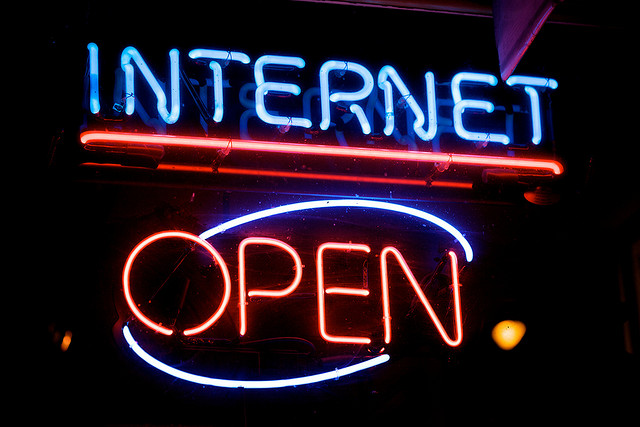The FCC Plans to Gut Net Neutrality, And They’re Hoping You Won’t Notice
We see you.

The Federal Communications Commission (FCC) is reportedly planning to overturn the 2015 Open Internet Order, an Obama-era order that classified broadband internet as a public utility, subject to Title II regulations (with some exemptions). As a result of this order, internet service providers (ISPs) are forbidden from using unfair, anti-competition practices like paid prioritization and blocking and throttling. Overturning this order would undo the open internet and open the floodgates for internet “fast lanes,” as well as make it legal for ISPs to promote their own streaming services with faster internet speeds than the competition.
Do you want an internet where the video on CNN.com barely loads, but Fox News loads with top speed? Where only the rich can play online games and stream video? Where proprietary streaming services like CBS All-Access load far faster than Netflix, just because the ISP owns CBS?
Of course you don’t. But Republican FCC Chairman Ajit Pai apparently does.
Pai has made his opposition to net neutrality quite clear. Back in May, he first presented his plan to withdraw the Open Internet Order, and although this dangerous deregulation drew more than 22 million comments from concerned citizens, the FCC still voted 2-1 to allow the plan to advance. Pai will now hold a final vote at a December 14 meeting of the FCC, and he’s expected to release his finished proposal for how to deregulate the internet on Wednesday, the day before Thanksgiving.
The Wednesday before Thanksgiving.
As Evan Greer of Fight for the Future so aptly put it, this does not bode well. “There’s a reason that Pai is releasing a plan that he knows will be overwhelmingly unpopular with voters from across the political spectrum on one of the busiest travel days of the year,” he wrote, “when many journalists are out of the office.”
Revoking the 2015 Open Internet Order, which millions of consumers demanded, is dangerous and foolish. As the Electronic Frontier Foundation (EFF) explains, “When providers choose to slow down certain types of traffic, they’re not doing it because that traffic is somehow more burdensome; they’re doing it to push users toward the content and service the ISP favors (or has been paid to favor)—the very behavior the Open Internet Order was intended to prevent. ISPs become gatekeepers rather than conduit.”
“As ISPs and content companies have become increasingly intertwined,” the EFF continues, “the dangers of ISPs giving preferential treatment to their own content sources—and locking out alternative sources—have become ever more pronounced.”
The Open Internet Order made it possible for the government to take providers to task for cheating their customers. For example, Verizon was chastised by the FCC for throttling Netflix and YouTube content, and AT&T has repeatedly been caught encroaching on net neutrality. Without the Open Internet Order, the FCC will no longer be able to enforce these rules, and the floodgates for monopolistic, anti-competitive practices will open. The government’s only recourse for punishing companies will be retroactive – after an offense has already been committed.
Consumers, of course, will be the ones to suffer.
You can call your reps in Congress, who have the power to slow this process down, and the FCC itself using Battle for the Net. I know we’ve got a million things to call our reps about, but the open internet is how we hear about so many of the important issues that come to light. We have to protect the information highway, so that everyone can remain an informed and active participant in our democracy.
(Via Reuters, the EFF, and Wired; image: image Jeremy Brooks on flickr)
Want more stories like this? Become a subscriber and support the site!
—The Mary Sue has a strict comment policy that forbids, but is not limited to, personal insults toward anyone, hate speech, and trolling.—
Have a tip we should know? tips@themarysue.com